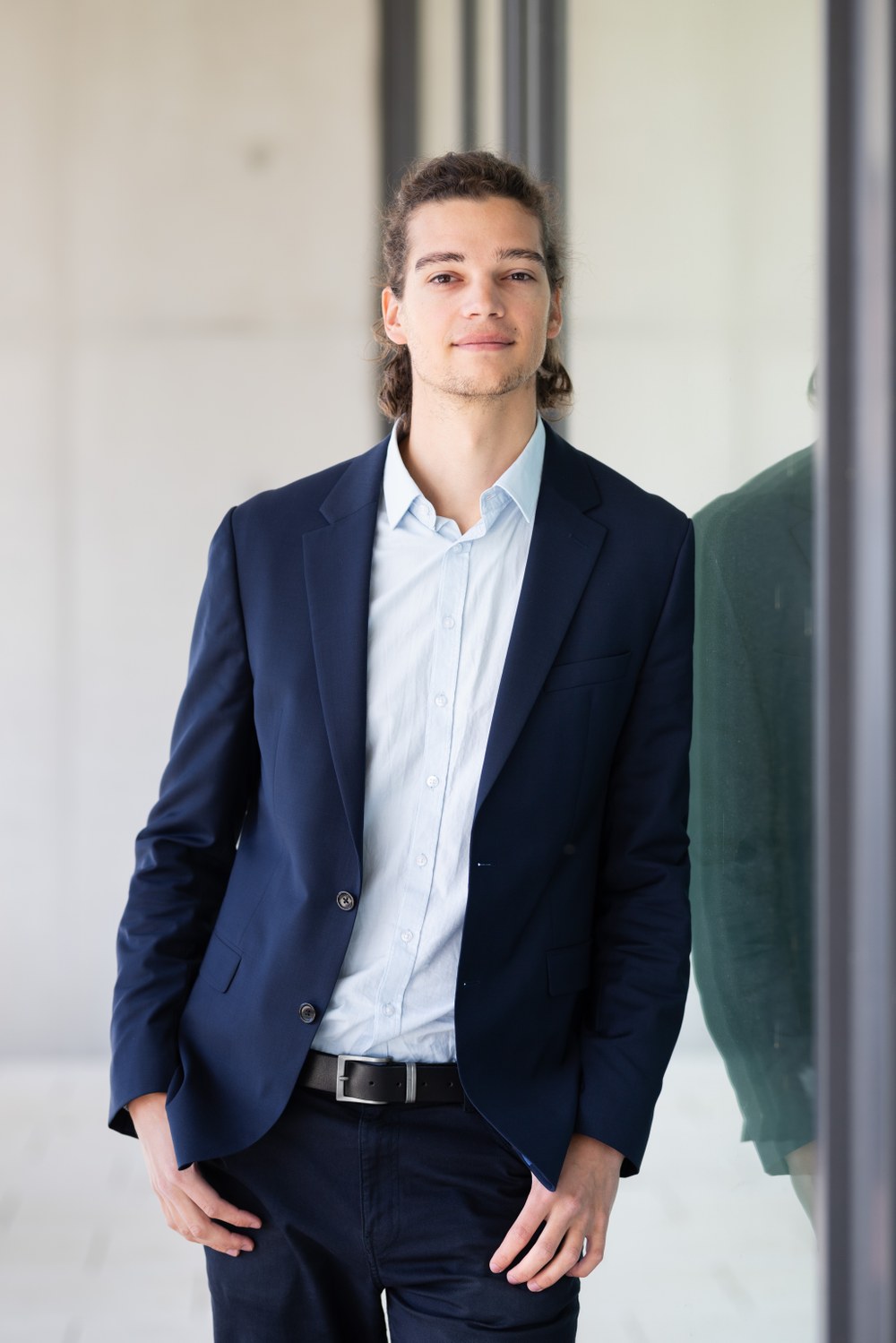Between tractor, trumpet and particle physics
The Institute of Software Technology has been joined by physicist Simon Schmitz. What his work has to do with space debris and how he wants to make machines learn - a brief insight.

Born in Ralingen, the man with the surprisingly Rhineland-sounding name came to the cathedral city after completing his studies and doctorate in Mainz in search of new professional challenges in the field of physics. "The openness of the Rhineland and the warm welcome I received from my colleagues at the Institute for Software Technology made my start in Cologne very easy," says Simon.
Music and physics in harmony
Many scientists seem to have one thing in common - a love of music. Simon, too, is a true musical all-rounder. He started with the trumpet, then the piano, the guitar and finally the tuba, which he even played as a student in the Mainz Symphony Orchestra. Before starting university, Simon thought long and hard about how he could combine his two interests, music and physics. He came to the pragmatic decision to include physics in his studies, as he could continue to play music without having to study. In addition to music, he also finds another way to balance a working life dominated by computer work: when he goes home to his parents' farm in Ralingen, near Trier, he lends a hand and drives the tractor out to the fields.
The tricky boson
It was astrophysics that first sparked Simon's interest in physics in general. However, he wanted to take a broader approach during his studies and later specialised in elementary particle physics for his degree. His thesis involved measurements of the Z boson as part of the ATLAS experiment at CERN's Large Hadron Collider (LHC). He was able to analyse and evaluate the data recorded in the particle detector in Switzerland using the supercomputer at the University of Mainz. For his PhD, Simon set out to find the Z' boson, the existence of which can be theoretically simulated, but which has not yet been detected in any of the LHC experiments. Simon spent seven months at CERN as part of his PhD and was able to experience the exciting search for the tricky boson at first hand.
Glimpses of the future of space travel
Having been interested in astrophysics from an early age, Simon is also fascinated by related issues in space. "How will space colonisation develop in the future? Will it be possible to find a new planet that is more habitable for humans?" asks Simon. These are all futuristic topics that resonate in his work at DLR through the context of space travel.
Simon's daily glimpse into space is provided by the BACARDI project, in which he is involved at DLR. This is a software programme for the complex processing of measurement data collected from space debris. In the second project, Simon is developing the HeAT software to enable highly parallel and efficient machine learning of even extremely large data sets on supercomputers. Simon's knowledge of machine learning was also acquired during his undergraduate studies in high energy physics. Although Simon has only just started his new job, he already has one goal in mind: "I want to develop this knowledge to become an expert at DLR.
